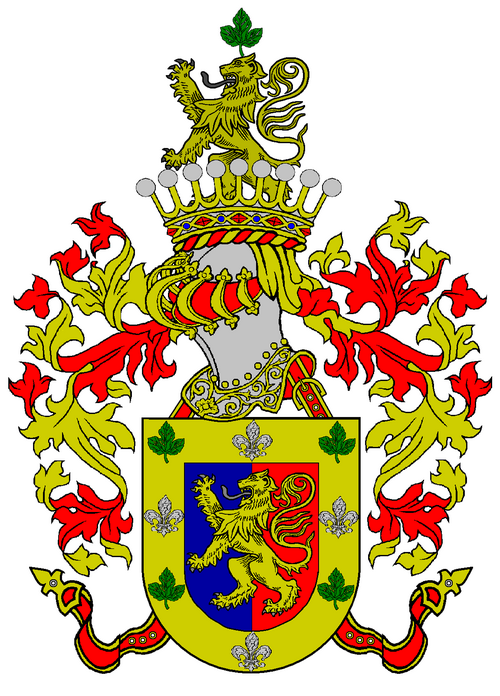MOVIE REVIEWS
 Review by Reno
Review by Reno
**A guide to the 17th century royal gardening!** I am little surprised with the film, because I was not expecting this storyline. I mean a good one. You know usually periodic film means there's always romance or war, but this one proved there are more topics to revolve and to reveal to the viewers. Yes, this one mainly talks about the engineering, especially gardening. Of course, romance was a part of it, but I loved the blend between these two subjects. One of the best periodic drama I've seen and all the stars were brilliant, particularly Kate Winslet was the best. Matthias Schoenaerts and Alan Rickman was not bad either. The tale begins with a widowed woman preparing for an interview to get the newly proposed royal gardening project. After some obstacles she gets it, but while the work is in progress, she faces some ups and downs. Besides a feeling for her boss grows intensively and also after an unexpected encounter with a royal member, things around her begins to change. So the deadline is nearing, but lots of work to complete, how she manages all the issues, including deciding about her new romance is what the rest of the narration reveals. This is not those colourful costumed female oriented films. This is about the profession at the top and the married life issues on a small scale. My first appreciation goes to the writers and then the director. But the actors did their part as I mentioned earlier to make it happen. I would have said it is a fine family film, but the film had matured contents, so it is a fine film for the grown-ups. I definitely recommend it. _8/10_
 Review by Filipe Manuel Neto
Review by Filipe Manuel Neto
**Despite being nice and visually beautiful, it is a film full of problems.** I don't think you need to be a historian or an art lover to recognize that the Palace of Versailles is one of the most iconic European buildings, not only because of the impact it had (it was copied throughout almost all of Europe and still serves as an inspiration to many artists and architects) but also for the mysticism it contains, as the height of luxury, sophistication and power, centralized and ritualized. It's more than a building, it's a symbol. This film focuses its attention on the enormous garden and park of the palace, and invents a nice story around them, which says more about our mentality than about the people of those times. Don't get me wrong: the film is enjoyable, but we must never assume that it is a historical film, or that any of the situations occurred in real life. It's fiction, and so are most of the characters. The king existed, of course, but it would be difficult for him to pass for a gardener in his own palace. The gardens were designed by André Le Nôtre, and he was also the author of the gardens of the Tuileries, in Paris, and the gardens of the palaces of Chantilly, Fontainebleau and Vaux-le-Vicomte. But he was an old man at the time the film takes place, not the dapper man played by Matthias Schoenaets. Madame de Montespan and Madame de Maintenon existed, but the latter was older than the former, contrary to what this film suggests. Sabine de Barra never existed, and a woman would have never been admitted to service in that job. There are no feminisms in this society. Another problem with this film is its central theme: order and chaos in the garden of Versailles. If we're honest about it, there's no room for chaos in a garden like this. Everything was thought and planned, even the time when Orangerie plants are kept in a greenhouse! The very space that Sabine de Barra creates in this film (which is, in fact, a Le Nôtre's work, the “Bosquet de la Salle du Ball”) is pure order. The French formal garden with topiaries, neat flower beds, sanded walks, is order. Where is the chaos anyway? The best thing about this film is, in fact, the enormous quality of its cast. Kate Winslet is impeccable and does a very good job, along with director/actor Alan Rickman and Stanley Tucci. It's Matthias Schoenaets who gets the paint dirty: not only is he too young for the role of Le Nôtre, he doesn't have any romantic chemistry with Winslet. Incidentally, the problem lies more in the poor conception of the characters, who think and behave like people of the 21st century, most of the time (this includes some inappropriate sex scenes, like that scene inside the carriage... how uncomfortable it can be to make it inside a carriage from that period!). Helen McCrory is another problem. She does what she can, but her character is clichéd and only serves to give her husband more reason to throw himself into another woman's lap. On a technical level, I really liked the sets, all shot in the UK, without setting foot in France. It was not necessary. The costumes are also very good, and I didn't notice any glaring or unforgivable anachronisms in the costumes, props or scenery. The cinematography is regular, as are the dialogues. The soundtrack isn't bad, it does its job skillfully.
 Review by CinemaSerf
Review by CinemaSerf
Alan Rickman directs and features in this engaging story as French King Louis XIV who desires a new and innovative garden for his palace at Versailles. He turns to his trusted planner André Le Notre (Matthias Schoenaerts) who is a bit bereft of ideas, so he seeks an assistant. All of the horticultural great and the good apply with their perfectly symmetrical designs - but they don't float his boat. Then the widowed "Mme. De Barra" (Kate Winslet) shows up with her own ideas for a waterfall style feature that is radically different - and will require quite a bit of engineering too. Surprisingly, she gets the job and what now ensues sees her develop a relationship with her boss - much to the irritation of his own cheating wife (Helen McCrory), and with the flamboyant Duc d'Orléans (Stanley Tucci) and then his brother the King. It's the death of Queen Maria Theresa that really allows "De Barra" to convince the King to indulge her dream - but with the weather, the costs, time and envy conspiring against her, can she deliver? This is a good looking film with a considered and amiable effort from both Winslet and Schoenaerts well complemented by a little of the science (and botany) required to make something that will break the mould and by a score from Peter Gregson that complements well the grandeur and pomp of the court contrasted with the mud, the endless, mud. It does take a while to get going, but when it does it shows us a little of a woman in a man's world and of a King who didn't always want to be in his.